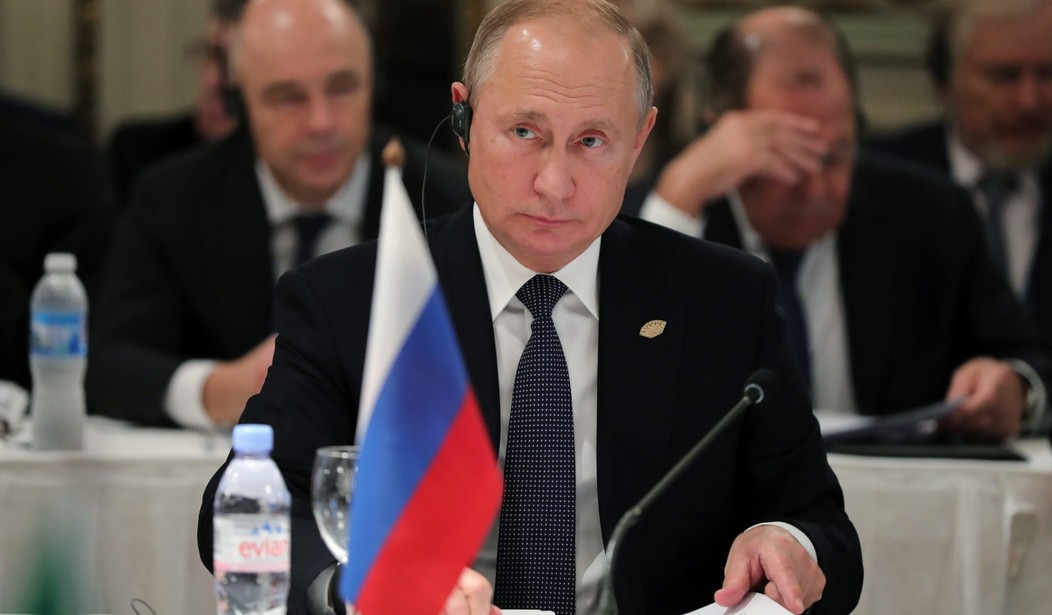The Western period of Russian history, which began in the eighteenth century with the orientation of the reformist Peter the Great to Europe, is coming to an end, believes the political scientist Karaganov.
The West offered Russia markets for Russian energy exports, new technologies and fresh capital – then the sanctions came. The East can soon do as well as the West delivers, according to the Russian elite, whose dazzling representative is Karaganov …
“We were the little brother you taught. NATO began to take over territories under the banners of democracy and non-alignment, which are vital to our security.” So Karaganov says the EU and NATO members in the Baltics. Should not the successor states of the Soviet Union decide freely about their alliances? “Of course you can decide. But the true decision is made by whomever has the power, “says Karaganov gloomily.
Then liberal elites would have shifted the canon of values of Europe. “We wanted to go to the Europe of de Gaulle and Adenauer, we were naive.” Today, from Karaganov’s point of view, Europe is just a bunch of problems: mass immigration from the South, excessive “political correctness” and tolerance towards immigrants, sinking competitiveness against a strengthening Asia, a weakening NATO under Trump’s leadership.
Soon, Moscow is likely to come even closer to China after Washington’s possible exit from the INF Treaty on the destruction of short-range and medium-range missiles, which Beijing has never signed. Washington’s termination of the treaty would be “a terrible blow to Europe,” Karaganov says.
A blow in which, in his view, the Americans are to blame. “For years they have been preparing a rocket crisis, they want to remilitarize Europe.” Russia is ready for the threats of the Americans. “They will not dare to station new short-range missiles in Europe, because they know: Then they will lose out.”
For Karaganow, the eastward swing is long overdue. Only as part of a Russian-Chinese “Great Asia” from Shanghai to Lisbon could Russia find its way back to itself, after centuries of being set back as the European periphery.
His “Greater Asia”, unlike earlier conceptions of Eurasia ideology, is not anti-European, Karaganov explains. Russia should not deny its European heritage, but must also recognize non-European influences. Centralism and a predilection for authoritarianism is in Russian blood. “We are also heirs of the Genghis Khan Empire.”
The Chinese, Karaganov believes, will be clever and will not act as hegemon, at least not towards Russia. “And if they do, we’ll quickly get together a coalition that will balance China.”
Karaganov prefers not to talk about problems in dealing with China. For example, that Chinese banks are freezing transactions with Russia for fear of secondary US sanctions , that Beijing still does not recognize Crimea as Russian territory, or that Beijing, with its billion-euro investments in Central Asia, has long surpassed Moscow’s economic commitment.
A Russian rescue mission will bridge all conflicts of interest. Even those with Europe: “To do this, the Europeans must give up the idea that their values are the highest achievement of humanity,” demands Karaganow.
“For a long time we held for Marxism, and see what has become of it. The Europeans are already behind it. Europe needs us, it is geostrategically naked and not viable on its own.” “Does Europe have to become more like Russia to understand itself with its neighbor in the East?” Karaganov thinks for a moment. “Europe must become more like Europe.”
That’s the talk, and the walk is just as disturbing. Russia is now China’s biggest provider of energy. Back in 2010 Russia provided just 5% of China’s oil imports. Now it provides more than 17%, along with the engines for China’s new stealth fighters, the S-400 air defense system that can sweep the skies over Taiwan from installations on the Chinese coast, and other weaponry.
It isn’t energy that worries me, though. America is self-sufficient in energy, while Asian economies depend on imports. What scares me is the fact that China already invests 25% more than the U.S. each year on a current dollar basis, and twice as much as the U.S. when the higher purchasing domestic power of the RMB is figured in ($1 million buys a lot more cement, steel and working hours in China than in the U.S.).
I don’t know how to compare the productivity of investment. In China, you can discount a lot of construction boondoggles scammed up by local governments, and in the U.S., you can discount the billions of dollars per mile we pay for underground trains, about ten times the cost overseas. But it’s also true that China graduates four bachelor’s degrees in STEM subjects for every one in the U.S., and two PhDs. Russia has a third of our population but it graduates more engineers than the United States (because only 7% of American undergrads study engineering).
As I wrote in this space last week, if we want to win this new Cold War, we need to fight it the way we fought and won the last Cold War. I support President Trump and want him to succeed, but tariffs just won’t accomplish what he wants to accomplish.












Join the conversation as a VIP Member